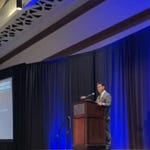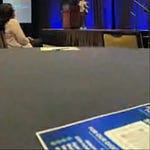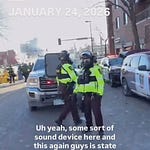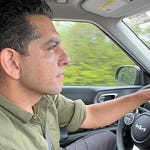Inside a conversation with an immigrant Trump voter—and why he’s starting to question everything.
By Nick Valencia
LOS ANGELES — Sometimes the most revealing stories don’t come from a press conference or a protest. Sometimes they come from an everyday interaction—with someone who sees the world differently than you do.
On Tuesday, on the streets of Los Angeles, I met a new subscriber to my work named Josh. He immigrated from Korea more than 20 years ago. He’s a Christian. He voted for Donald Trump.
I asked him—genuinely, not rhetorically—how, as both an immigrant and a person of faith, he reconciles supporting a man like President Trump. His answer stopped me.
“I’m not voting for a pastor or a priest,” he said. “I’m voting for policy. The gender identity politics were too much for me.”
As for immigration? He told me he followed the rules. Did it legally. Took years. But lately, he said, he’s been questioning what he once believed.
It wasn’t a debate. It was a conversation.
When Trump told the world that transgender people “don’t exist,” Josh admitted he felt confused. “Where’s the middle ground?” he asked.
I told him what I’ve learned since that moment—what my wife, who works in trans health research, has helped me better understand: fewer than 10 openly trans athletes are currently competing in NCAA sports.
Josh paused. “I didn’t know that,” he said. “That’s eye-opening.”
Then he said something else—something heavier.
“With what’s happening now with the military-style police on our streets… it’s too much,” he said. “It feels like a battlefield.”
That moment mattered.
Here was a Trump supporter—an immigrant—who was willing to reconsider. Who walked away with more information than he had before. Who acknowledged that in order to start healing we must first acknowledge the pain our communities have put up with.
Just like Denis, my 80-year-old friend who lives in an assisted living facility in Ohio. He supports President Trump. And he loves me like his own son. He reads everything I write.
This week, after seeing our reporting on the streets of LA, he told me I’ve helped him see things differently—from his view in the Midwest.
If Denis can stay open at 80, and Josh can rethink a belief or two during a 30-minute conversation in Los Angeles, then maybe—just maybe—there’s still hope for the rest of us.
That’s the job. That’s the work. Not to cancel. Not to convert. But to connect.
Because if they’re still willing to listen, I have to be willing to speak.











